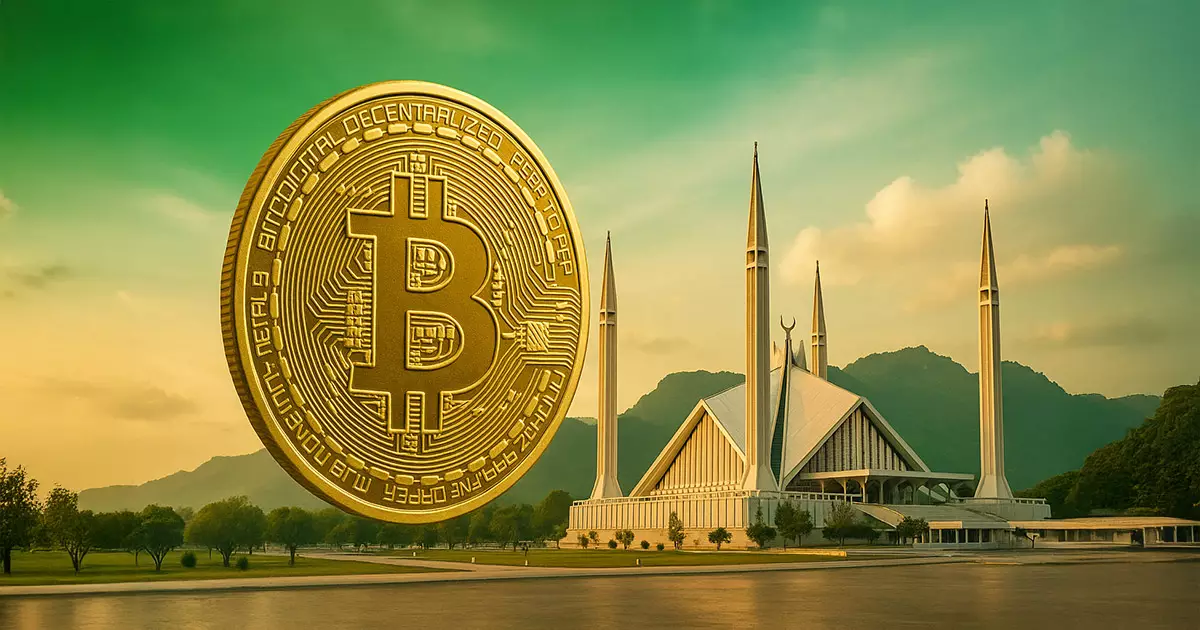In a world where the allure of cryptocurrencies has captured the imagination of millions, Pakistan finds itself at a precarious crossroads. The recent announcement of allocating 2,000 megawatts to Bitcoin mining amidst pressing electricity shortages raises fundamental questions about the financial prudence of such a decision. On one hand, this move could position Pakistan as a leader in the burgeoning cryptocurrency market; on the other, it could deepen the nation’s existing fiscal crises. The reality is stark—Bitcoin, touted by its advocates as the future of money, may not be the panacea it is often portrayed to be.
IMF’s Skepticism: A Sign of Imminent Crisis?
The International Monetary Fund (IMF) has stepped in with a warning, urging Pakistan to clarify its plans regarding Bitcoin mining and electricity allocation. This skepticism stems from the IMF’s experiences with other nations that have dove headfirst into crypto investments without proper risk assessments. The failure to involve the IMF in power allocation plans speaks volumes about the current administration’s approach to governance that often flirts with irresponsibility. With Pakistan already grappling with ballooning fiscal deficits and inflation rates, how wise is it to push forward with such ambitious plans?
Public institutions need to enforce checks and balances, especially when massive financial stimuli are in play, but the Pakistani government seems to be sailing without a compass. Perceptions of favoritism and lack of transparency abound, particularly given the involvement of high-profile figures from the cryptocurrency world. The recent MOU with World Liberty Financial and the appointments to the Pakistan Crypto Council feel more like a gamble than a calculated economic strategy.
Coal Power Plants: A Dark Strategy for a Bright Future?
The plan to repurpose underutilized coal power plants is another troubling aspect of this equation. The irony of adopting a forward-looking technological innovation like Bitcoin while clinging to fossil fuels for energy is not lost on critics. With global movements steadily tilting towards renewable energy solutions, Pakistan’s decision to repurpose coal-fired plants for crypto mining only serves to highlight the fragile priorities within its policy-making framework. Such energy strategies could jeopardize the government’s efforts to stabilize electricity tariffs and distribution, risking public backlash against both the government and the crypto investments.
Furthermore, the potential regulatory impacts of this initiative cannot be ignored. The IMF fears that these decisions might derail ongoing efforts to stabilize Pakistan’s economy. Imagine feeding the whims of Bitcoin enthusiasts while neglecting the pressing needs of ordinary citizens facing rising electricity costs. This sort of prioritization reflects a governance style that is dangerously out of touch with the reality on the ground.
Cryptocurrency: The New Frontier or Another Mirage?
Pakistan’s pivot towards cryptocurrency regulation, marked by the formation of the Pakistan Digital Assets Authority (PDAA), suggests an ambition to integrate digital assets into the financial system. While the establishment of such regulatory bodies could foster innovation, the inherent risks associated with crypto investments cannot simply be brushed under the carpet. The involvement of former Binance CEO Changpeng Zhao adds a glamor factor, but it also raises concerns about potential conflicts of interest, further muddying the waters of accountability.
The paradox here is that while cryptocurrencies promise decentralization and financial freedom, the lack of clear, robust legislative frameworks leaves a chasm for exploitation—making vulnerable populations even weaker. Governments should be focusing on elevating traditional economic sectors instead of diving headfirst into volatile digital assets.
Time for a Reality Check
As the Pakistani government leans into this high-risk venture, stakeholders from all sectors must engage in a critical discourse about the consequences of their decisions. Economic recovery should be prioritized over speculative gains, especially when the nation is facing profound structural challenges. The whispers of difficult negotiations with the IMF hint at the complexities involved, and it becomes increasingly evident that this opportunity may actually be a pitfall masked as a chance for innovative growth.
In short, while the intentions behind embracing Bitcoin may be noble, the execution reeks of desperation. Striking a balance between technological advancement and economic stability is not just ideal; it is essential for Pakistan to look beyond ephemeral trends and seek sustainable, equitable solutions to its crises.

